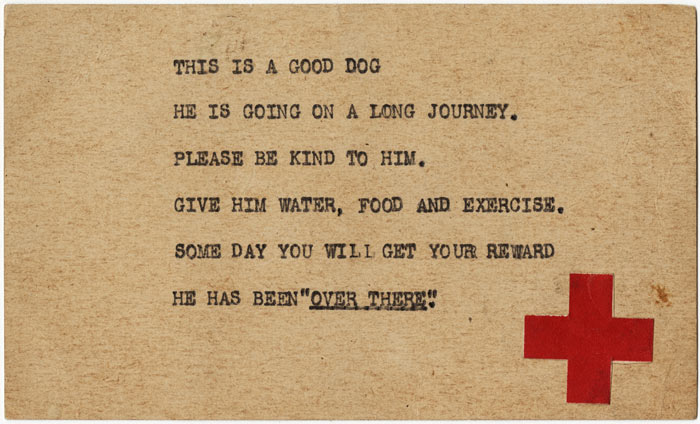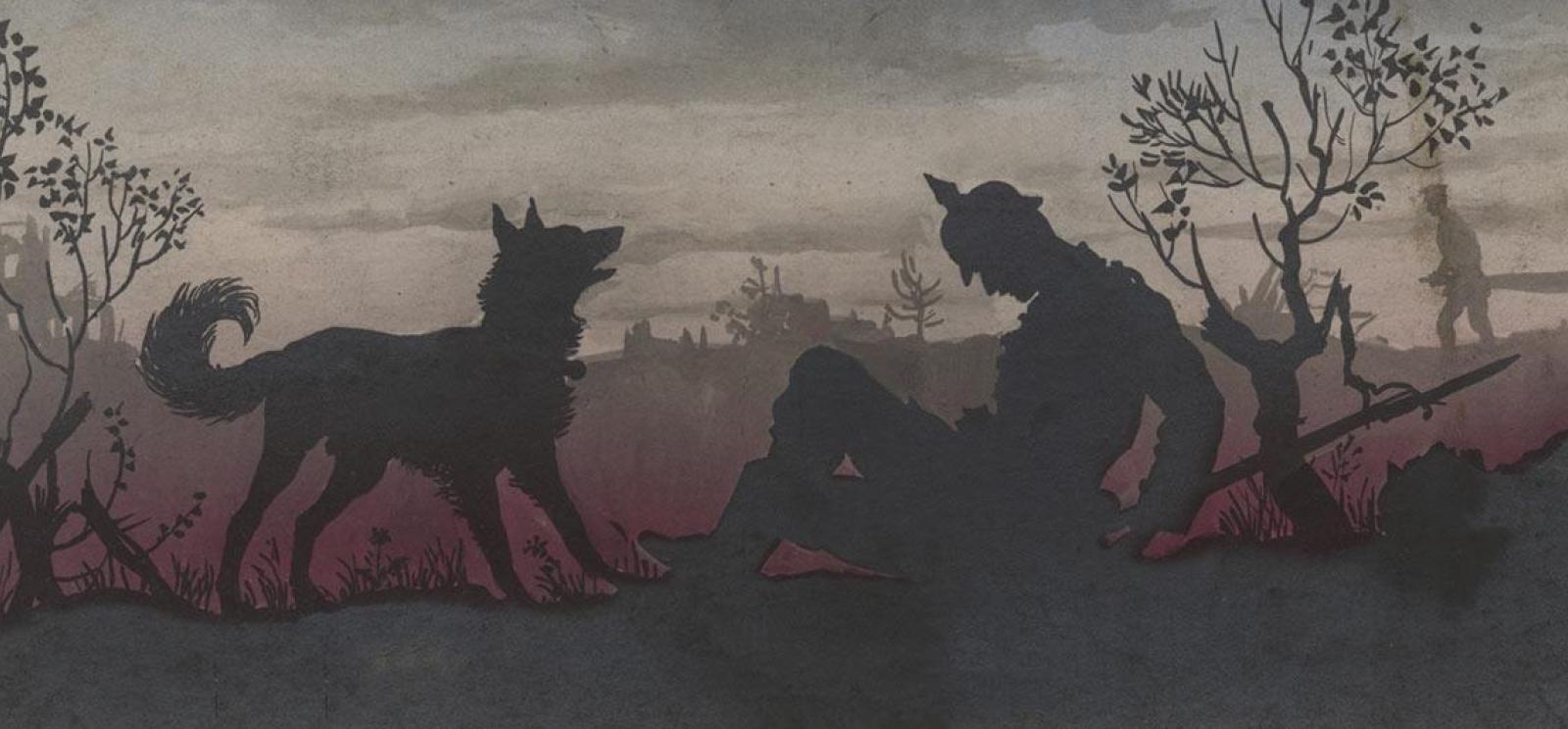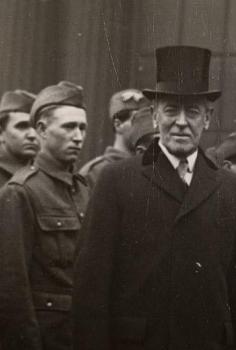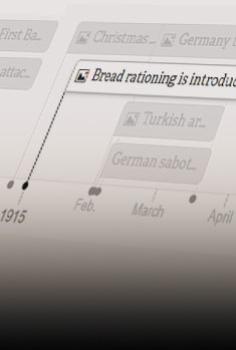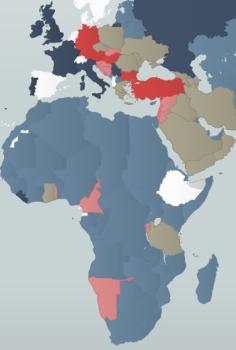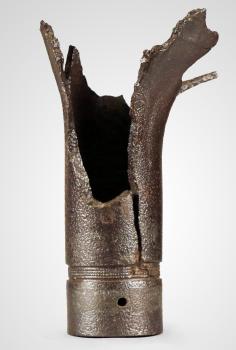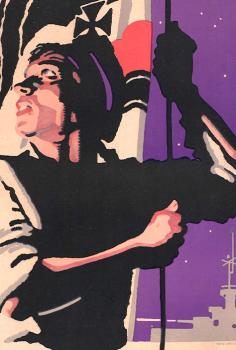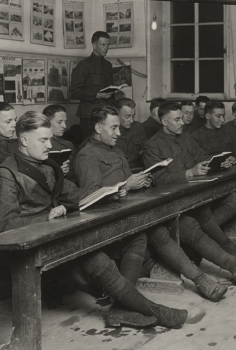Dogs played an important military role for most European armies during World War I, serving in a variety of tasks. Dogs hauled machine gun and supply carts. They also served as messengers, often delivering their missives under a hail of fire. Though it is difficult to fully account for their numbers, according to one French source “more than two thousand dogs” were in service on the Western Front at one time during the war, and the Imperial War Museums believes over 16 million total animals were in service during the course World War I.
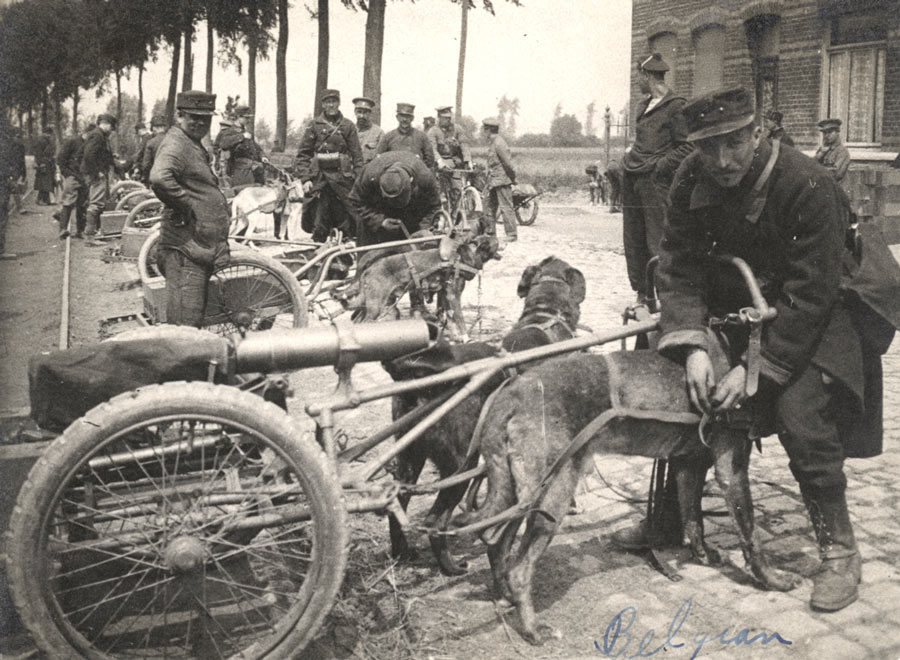
During the war, all armies had organized medical corps ready to go to the front lines. Stretcher-bearers ran out onto the battlefields to dress wounds and carry the wounded to aid stations, with the assistance of dogs used to locate and help the wounded.
French first aid dogs were selected and carefully trained, often for months, to go onto battlefields and locate wounded soldiers. They were trained to either stay with the injured until human aid arrived or to bring back evidence of the wounded soldier. Many of the dogs actually carried first aid kits in packs on their backs for immediate use by the wounded.
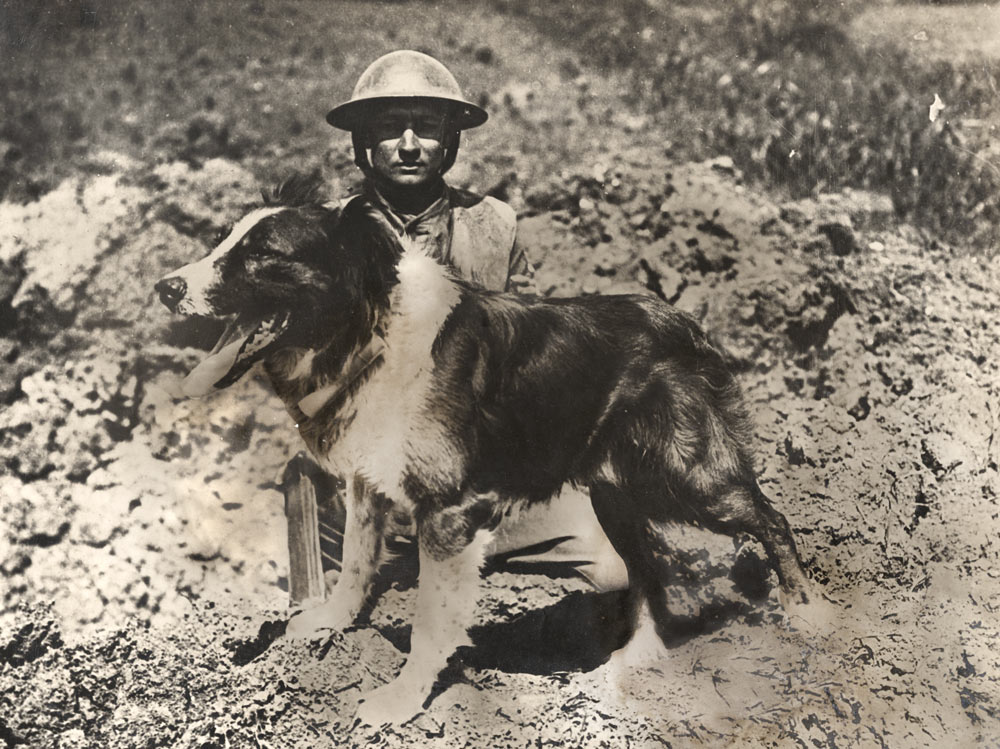
The French, among others, also used small dogs as rat catchers in the trenches. Rats were the overwhelming scourge of trench life and rat-killing dogs proved invaluable to life on the front.
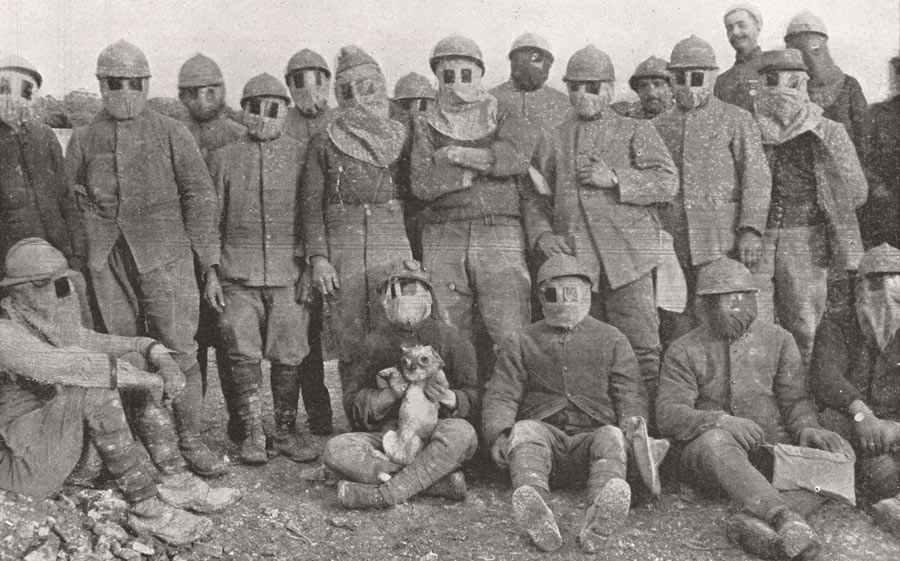
Dogs were valued for their skills during the war, and in high demand. In response, the American Expeditionary Forces (A.E.F.) Headquarters issued the following general order on Oct. 1, 1918: “In order not to curtail the supply of dogs required for the ‘Service Francais des Chiens de guerre,’ [French war service dogs] all officers and soldiers serving in the A.E.F. are forbidden to purchase or to have in their possession, except as may have been issued them for official use, any dogs of breeds suitable for war purposes, especially the shepherd, the drover and the mastiff dogs.”
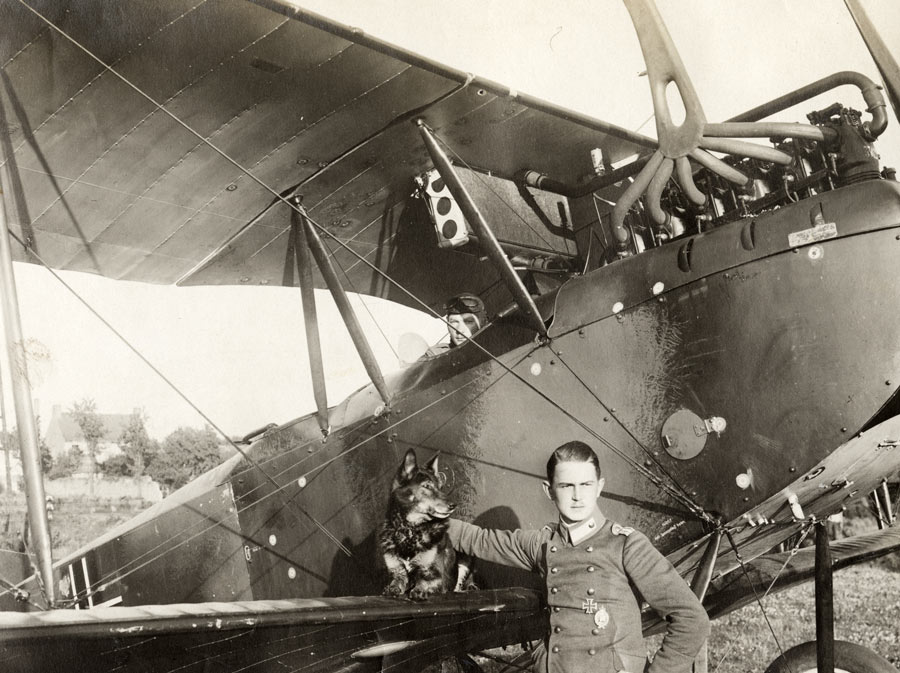
In addition to their working role in the war, animal mascots, especially dogs, were popular with soldiers from both sides, building morale and creating a feeling of home under war conditions. In speaking of Moritz, his faithful dog, the Red Baron, German flying ace Baron Manfred von Richthofen, said: “The most beautiful being in all of creation is the genuine Danish hound, my little lap dog, my Moritz.“ Richthofen even took Moritz up in his plane on occasion.
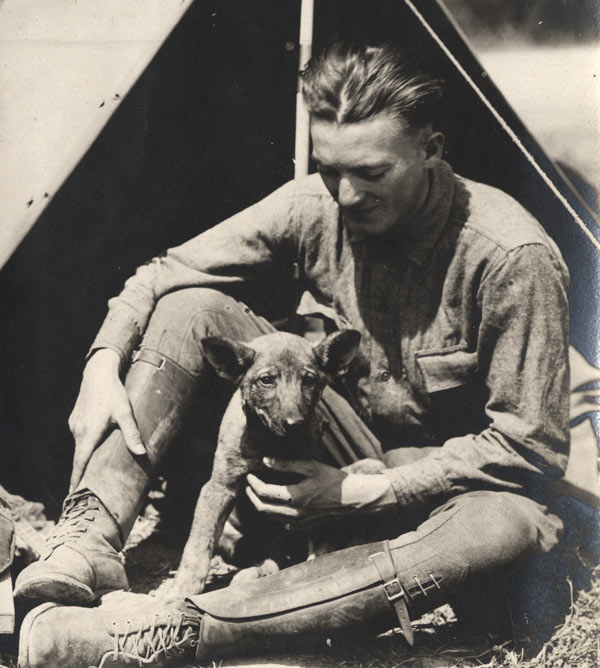
After the war, some of these dogs became pets of American soldiers. Two abandoned German Shepherd puppies were found on the front by a U. S. soldier who adopted them. Although illicit in the eyes of General Headquarters, he took them back to the States. The female, Nanette, died in transit but her brother Rin Tin Tin made it to California where a life of fame and fortune in motion pictures awaited.
